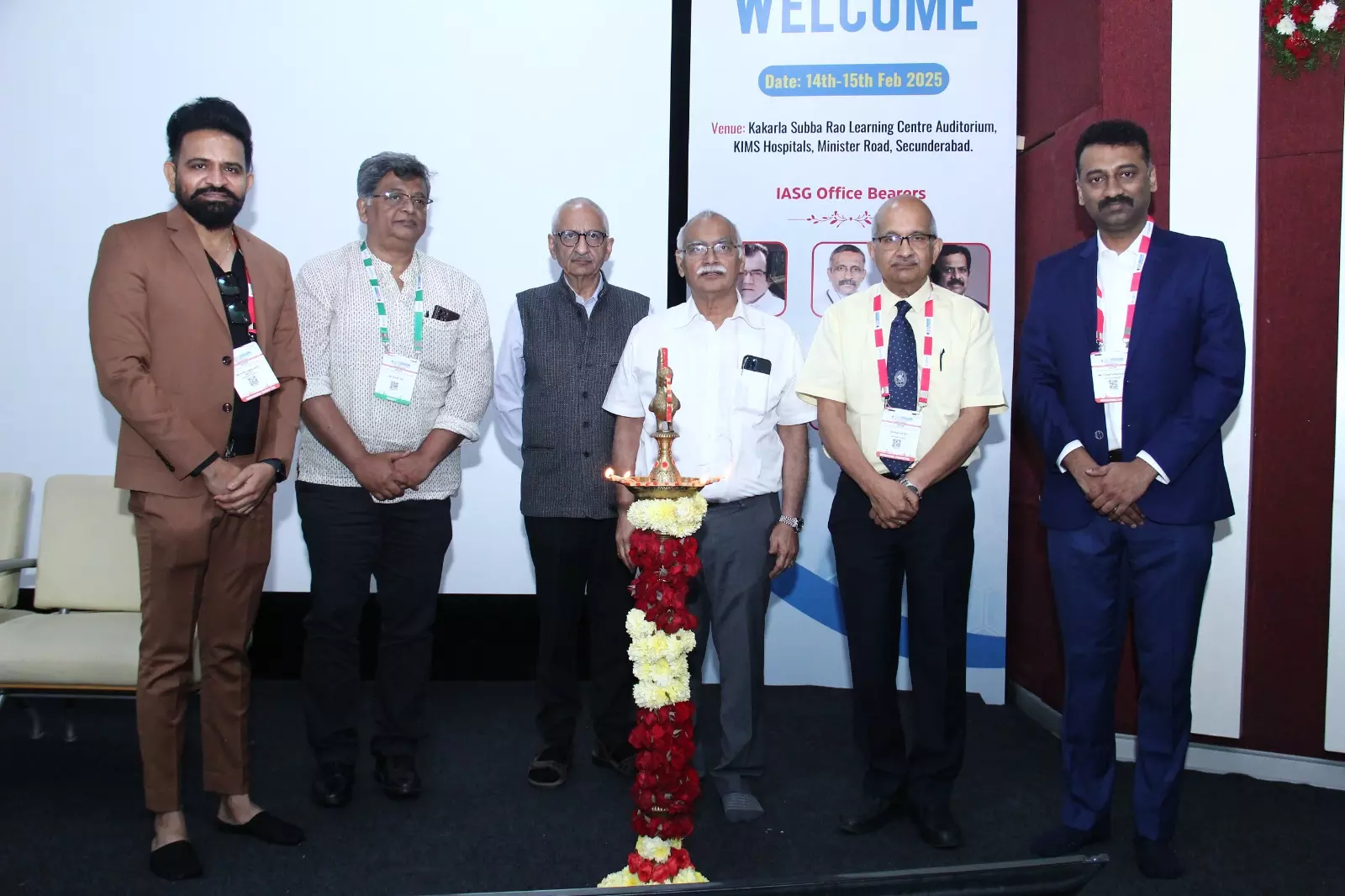Surge in Colorectal Diseases Sparks Concern Among Medical Experts
KIMS and KIMS-Sunshine Hospitals Host Conference to Address Rising Cases and Treatment Advances

Medical experts have raised alarms over the rising incidence of colorectal diseases in India, linking the surge to modern lifestyle habits, Western dietary patterns, and a lack of physical activity. Over the past decade, colorectal cancer cases have escalated significantly, alongside a sharp increase in conditions such as Inflammatory Bowel Disease (IBD) and Crohn’s disease.
Addressing these concerns, KIMS and KIMS-Sunshine Hospitals hosted a two-day annual conference under the banner of the Indian Association of Surgical Gastroenterology at the KIMS Hospital premises in Hyderabad. The event, held on February 14 and 15, brought together over 500 medical professionals, including surgical and medical gastroenterologists, general surgeons, surgical oncologists, and other specialists from across India.
Dr. Bollineni Bhaskar Rao, CMD of KIMS Hospitals, served as the Chief Patron of the event, ensuring comprehensive discussions on the latest advancements in the field. Senior Consultant Surgical Gastroenterologist Dr. G. Parthasarathy from KIMS Hospital and Dr. E. Vimalakar Reddy from KIMS-Sunshine Hospital acted as organizing secretaries, with Senior Consultant Surgical Gastroenterologist Dr. R.A. Sastry serving as the organizing chairman. The conference also featured distinguished experts such as Dr. G.V. Rao, Dr. Peush Sahni, and Dr. Sujoy Pal, who shared their insights on cutting-edge treatments and research.
Speaking on the advancements in colorectal cancer treatment, Dr. Parthasarathy noted, “The past decade has witnessed a paradigm shift in treatment methodologies. From traditional approaches, we have moved to highly individualized treatment plans based on genetic testing, enabling us to determine the most effective therapies for each patient. This has significantly improved survival rates and overall patient outcomes.”
Dr. Vimalakar highlighted the evolution in treating IBD, stating, “Previously, steroid-based treatments and frequent surgeries were common. Today, we use monoclonal antibodies, which have reduced the need for surgical interventions. Crohn’s disease, which was once rare in India, is now increasingly prevalent due to changing dietary habits.”
He also emphasised the importance of continuous medical education (CME) programs, adding, “Medical knowledge evolves rapidly, and conferences like this enable doctors to stay updated with new treatment protocols, ensuring better patient care.”
The conference served as a crucial platform for collaboration and knowledge exchange, reinforcing the commitment of India’s medical community to advancing gastroenterology treatment and improving patient outcomes nationwide.
